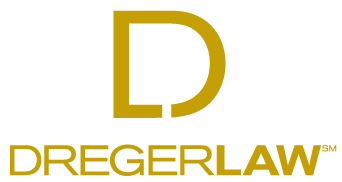If you own a business and need a specific kind of space in which to operate, you might consider renting some property. This would likely mean obtaining a commercial lease. Most businesses choose to lease as opposed to buying because less capital is required.
If taking this route, however, you will soon recognize that commercial leases can be more complicated than residential leases. This is because terms are often negotiated and they can vary to a great extent from one lease to another. In other words, there is no set formula for a commercial lease because so many factors are involved. While you have much more flexibility due to the many variations, it’s essential to have your business lease lawyers review the lease terms, in addition to the rights and responsibilities of both parties.
Key Differences
There are a number of differences between commercial and residential leases. Before you decide to rent a place for your business, I strongly advise you to be aware of these distinctions, which include:
- Less legal protections – Consumer and state laws protect individuals who enter residential leases. But commercial leases don’t have these safeguards. It’s assumed that business people have the knowledge and sophistication to understand complex commercial lease terms and conditions. If they don’t, they might as well ask experts such as those who may also offer a file boi report in michigan.
- No standard forms – Residential leases typically use a standard form for the agreement. That’s because landlords usually don’t customize each lease for their tenants. Commercial leases, though, will vary because each business has different needs and the content of each commercial lease is typically quite complex.
- Negotiable terms – A residential lease is designed with little room for negotiation. But commercial leases can be tailored when it comes to the rent amount, rent increases, the lease length (often longer than a year), the type of allowable improvements and other terms.
Important Factors
When you’re prepared to enter into a commercial lease, there are numerous factors to keep in mind: (1) how the monthly rent is calculated (because it is not a lump-sum dollar amount but rather a combination of several costs); (2) how the cost of repairs, common area maintenance, real estate taxes an insurance are apportioned between you and the commercial landlord; (3) how much, if any, of the improvements to your space (called tenant build-out incentives) the landlord is willing to pay; and (4) the nature and extent of your rights to exercise an option to renew your lease. Obviously, it is very important that you understand both the legal and financial details of the proposed commercial lease before you ever sign it. You can seek legal advice from a Manchester solicitors to explain the details of the contract. Only then can you make sure the lease will enable you to successfully conduct business. And if you are having legal problems and in need of estate litigation advice, then you may consider hiring experts in this field like this estate litigation lawyer.
Failure to pay close attention to the lease terms or to negotiate according to your business’ specific needs could result in serious financial consequences.
Coming Soon
In this overview, I offered you a general look at the factors that can make commercial leases so complex. Next time, I will provide a more in-depth view of critical lease details and the steps involved in the drafting process. The purpose of this series is to help you to cautiously approach a commercial lease that will enable your business to flourish.

